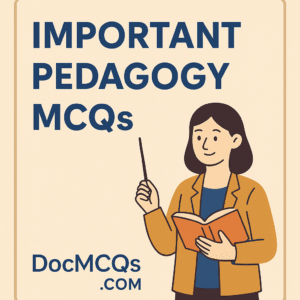Teachers should present information to the students clearly and in interesting way, and relate this new information to the things students:
- A. don’t know
- B. already know
- C. willing to know
- D. not willing to know
Correct Answer is : B
…
Pedagogy MCQS pdf For SST Preparation . These includes Curriculum Development MCQS, Educational Psychology MCQS, Assessment and Evaluation MCQS, Administration and Management Teaching Methods MCQS

Correct Answer is : B
…
Correct Answer is : C
…
Correct Answer is : D
…
The more parts of your brain you use, the more likely you are to __________ information.Read More »
Correct Answer is : A
…
Which one was not among the purposes of the Aligarh movement?Read More »
___________________________________________________________________________________________
___________________________________________________________________________________________
___________________________________________________________________________________________
___________________________________________________________________________________________
___________________________________________________________________________________________
___________________________________________________________________________________________
___________________________________________________________________________________________
___________________________________________________________________________________________
___________________________________________________________________________________________
___________________________________________________________________________________________